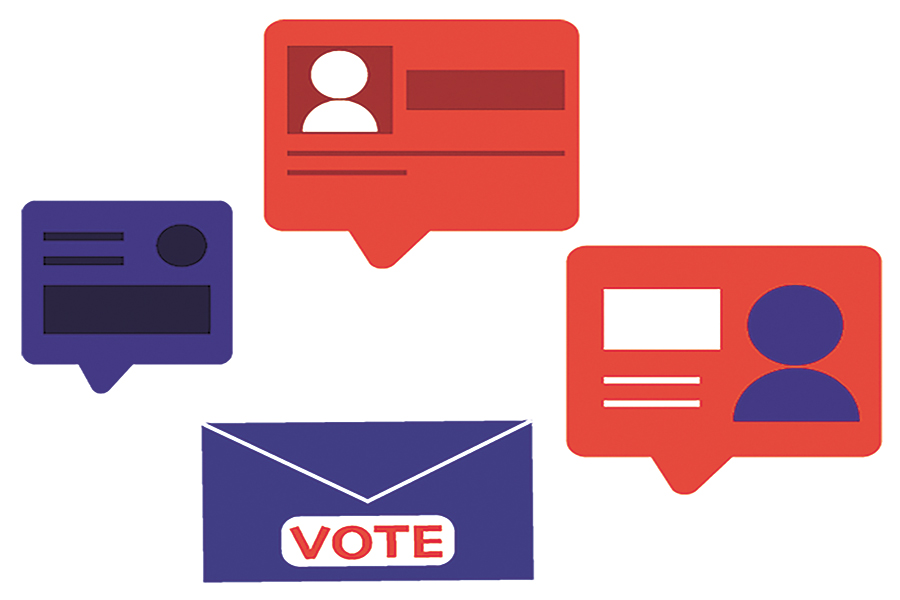Most of us were taught the importance of a good source back in grade school. Sure, it was a boring lesson no one wanted to sit through made worse by the fact your English teacher felt the need to revisit it every time there was an upcoming project, but it was an important lesson all the same.
And those English teachers’ warnings of extreme consequence following anyone who falls into the pit of misinformation still hold true today. But this election season has shown us that we have so much more to fear than a failing grade. Make no mistake, people will get hurt if this continues.
Take what happened in Springfield, Ohio for example. By now, most of us are aware of Former President Trump’s “They’re Eating the Dogs” spiel on the debate stage this September. If you didn’t see it live, you’ve probably seen one of the many memes circulating because of it. To clarify the situation for the uninformed, the former president shared claims about Haitian migrants eating the pets of Springfield residents. This resulted in numerous harassment cases, bomb threats and multiple online slander campaigns across platforms including YouTube and Tik Tok. Springfield was put into a panic seemingly overnight with all of its residents scrambling to protect themselves and their families. Government buildings were shut down and state police were deployed to local schools following their eventual reopening.
It may shock you to learn that these events culminated all because of a Facebook hate group. Not a rouge journalist and startling investigation brought to light — a Facebook post. A resident of Springfield commented how the cat of a family friend had gone missing and bitterly remarked that Haitian migrants must have mistaken it for food. The post quickly gained popularity for all the wrong reasons. Accusations and insults were thrown left and right, the comments turning to threats as the days went on. When tensions grew to the point where even the governor had to make a statement, the original post was deleted and the author expressed remorse for writing it in the first place. But by then it was too late. The false claims of Haitians eating pets had spread like wildfire and eventually found their way to the former president, leading him to escalate the already tense situation.
This is the effect misinformation can have. Springfield is still on high alert, because while tensions have begun to die down, confrontation still lingers.
It isn’t uncommon for “shocking discoveries” to be revealed during election season, and it can be hard to distinguish fact from fiction. Here are a few ways to avoid falling into the trap of misinformation:
Check the source. Reputation matters when looking into a source’s claims. Not all news sources are trustworthy. Be sure to look into where you’re getting your facts from before making any harsh judgments.
Dive deeper. If a story is so wildly unbelievable you question how you didn’t hear about it sooner, it isn’t wrong to assume other sources will be covering it. Research the topic to gain a better understanding of what’s really at play.
Consult other sources. Tying into the previous tip, it can be beneficial to seek a second opinion from another source, perhaps even one you don’t personally agree with. Seeing another perspective on a situation and analyzing their way of retelling events can help you form a better judgment.
Don’t let misinformation be your downfall this election season, for your own sake as well as your neighbors’.




























